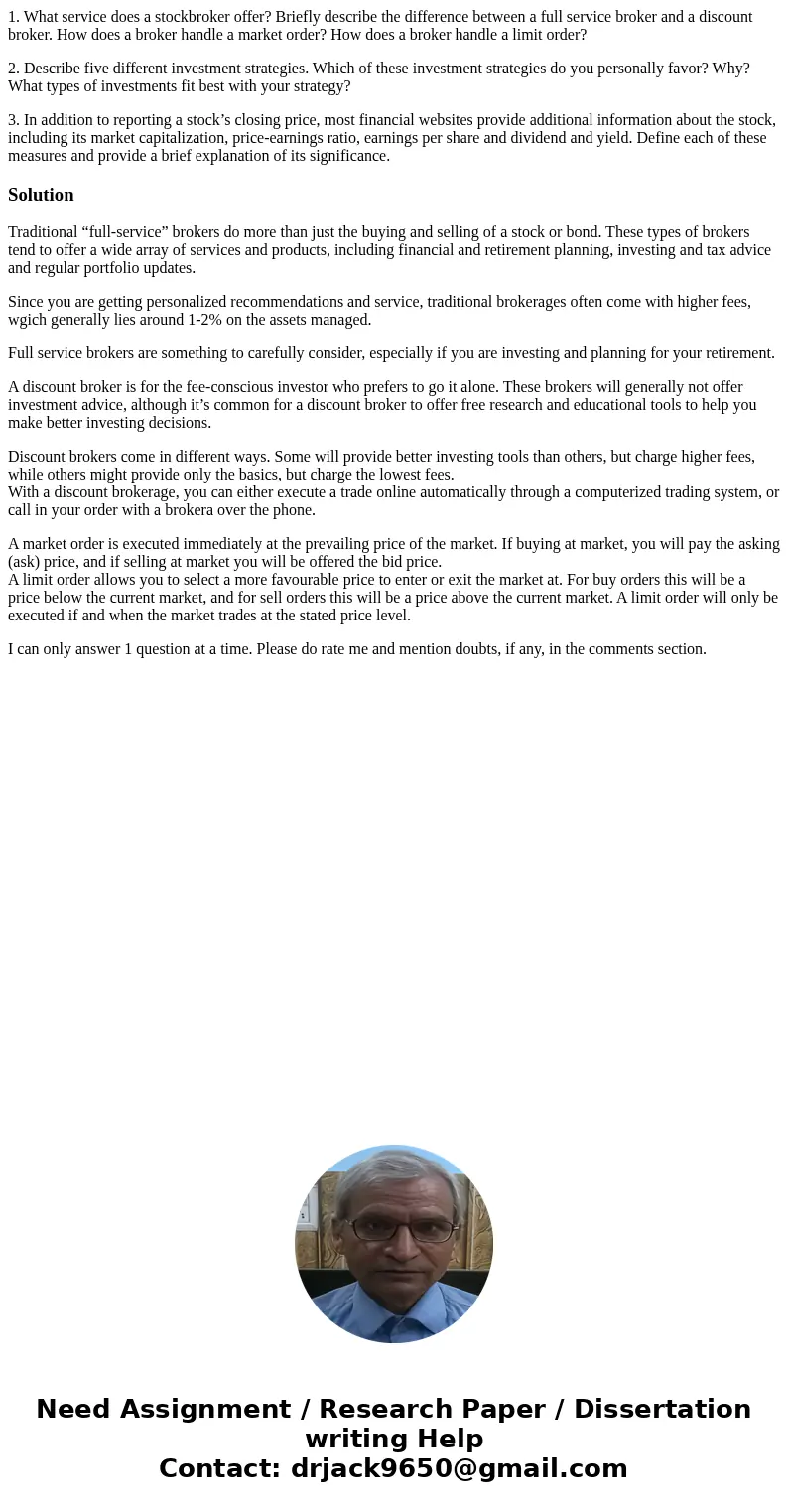1 What service does a stockbroker offer Briefly describe the
1. What service does a stockbroker offer? Briefly describe the difference between a full service broker and a discount broker. How does a broker handle a market order? How does a broker handle a limit order?
2. Describe five different investment strategies. Which of these investment strategies do you personally favor? Why? What types of investments fit best with your strategy?
3. In addition to reporting a stock’s closing price, most financial websites provide additional information about the stock, including its market capitalization, price-earnings ratio, earnings per share and dividend and yield. Define each of these measures and provide a brief explanation of its significance.
Solution
Traditional “full-service” brokers do more than just the buying and selling of a stock or bond. These types of brokers tend to offer a wide array of services and products, including financial and retirement planning, investing and tax advice and regular portfolio updates.
Since you are getting personalized recommendations and service, traditional brokerages often come with higher fees, wgich generally lies around 1-2% on the assets managed.
Full service brokers are something to carefully consider, especially if you are investing and planning for your retirement.
A discount broker is for the fee-conscious investor who prefers to go it alone. These brokers will generally not offer investment advice, although it’s common for a discount broker to offer free research and educational tools to help you make better investing decisions.
Discount brokers come in different ways. Some will provide better investing tools than others, but charge higher fees, while others might provide only the basics, but charge the lowest fees.
With a discount brokerage, you can either execute a trade online automatically through a computerized trading system, or call in your order with a brokera over the phone.
A market order is executed immediately at the prevailing price of the market. If buying at market, you will pay the asking (ask) price, and if selling at market you will be offered the bid price.
A limit order allows you to select a more favourable price to enter or exit the market at. For buy orders this will be a price below the current market, and for sell orders this will be a price above the current market. A limit order will only be executed if and when the market trades at the stated price level.
I can only answer 1 question at a time. Please do rate me and mention doubts, if any, in the comments section.

 Homework Sourse
Homework Sourse